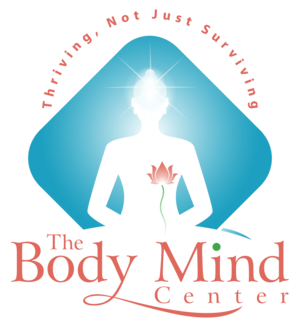Do Certain Patterns Or Damaging Behaviors Follow You From Relationship To Relationship?
Have you fallen into the same unhealthy or counterproductive relationship patterns time and time again? Are communication issues creating tension or impeding your ability to connect with your partner? Have you noticed yourself becoming triggered by certain interactions but don’t know why?
Perhaps you are someone who identifies as successfully progressing in most areas of your life—at work, in your friendships, and among the community at large—yet you keep running into the same dead ends in your intimate partnerships. You may have noticed a cycle forming where an urgency to withdraw, shut down, or avoid committing prevents you from maintaining sustainable relationships.
It may be that you have trouble trusting others. Or perhaps when things start getting serious, you begin to self-sabotage and engage in behaviors that you know have created problems in the past. Maybe you find yourself wondering where these behaviors began or how you learned about relationships based on what was modeled to you as a child.
Ultimately, you may worry that you will forever repeat the same relationship patterns that end in heartbreak and disappointment or that you will never be able to fully commit yourself to a partner. And you may dread that you are jeopardizing your current partnership or that you will end up alone and without a long-term partner who can provide support while seeing you through life’s highs and lows.
While these concerns may seem like painful realities now, you don’t have to be alone in navigating them. Counseling at The Body Mind Center can help you to explore your history, understand your behaviors, and help you cultivate a healthy skill set to apply to your intimate relationships.
Early Attachments Impact Us For Life
Regardless of household, we all grow up in relationship dynamics—those between parents or caregivers themselves, and those between parents or caregivers, our siblings, and ourselves.
As such, we are all subjected to the whims of varying and nuanced attachment styles, imprinted on us by these family dynamics. The quality of these bonds depends entirely on the pattern of rupture and repair that cycles through each relationship. Early ruptures—like a baby crying out for food, warmth, or attention—are repaired by a parent/caregiver figure seeking to meet the needs of a crying child. This rupture and repair dance continues throughout childhood and becomes more complex as children develop new awareness of their surroundings.
With or without knowing it, we all carry certain behaviors from childhood into the rest of our lives—behaviors that may have at one time been adaptive and helpful to us but have since become regressive as we’ve matured. For instance, if we grew up with parents who weren’t often around or worked a lot, we may have developed self-soothing and self-sufficiency skills that have since deteriorated into solitary behaviors that devalue emotional intimacy or codependency issues that cause us to feel abandoned or become hyper-clingy.
Unfortunately, however, we often aren’t aware of insecure attachments or relationship patterns as they are forming, and instead only begin to notice that something is amiss after running into the same issue time after time as adults. Critical thinking skills don’t begin to get fully formed until we are teenagers. And until then, we are acclimated to all of the behaviors that have been repeatedly modeled to us since birth. What is apparent to us is precisely the “tip of the iceberg,” with a whole well of information constantly accumulating beneath the surface, which is outside of conscious awareness.
Therapeutic counseling aims to bridge such implicit awareness with an explicit one so that you can be fully attuned to what is happening inside of your relationship and how your unconscious behavior patterns and/or coping strategies are likely contributing to it.
Counseling Can Pave The Way For Newfound Understanding About How Past Attachments Have Shaped Your Present Relationships
As experts on attachment, therapists can help you to identify the longstanding issues within your relationship dynamics so that the process of healing may begin. We are supportive, objective, and unbiased professionals who view our role as substituting curiosity for judgment. We’re not interested in placing value on your behaviors or decisions but rather understanding where your approach stems from and how it was formed.
We will begin the process of counseling by exploring the relationships you maintained and observed throughout childhood. By understanding the experiences that habituated your behaviors, we can gain a better sense of how you learned to express yourself and your emotions. From there, we will explore not only the specific and personal experiences that have shaped your attachments and worldview, but also how the rest of yourself—the thinking, feeling, and body channels—have organized around those memories and experiences.
And though you may believe your caregivers were well-intentioned or find yourself uninterested in criticizing your parents’ attachment styles, we aren’t here to cast judgment in that arena, either. The therapeutic process is not about placing blame but rather transforming the behaviors that are no longer suiting your needs. As Lori Gottlieb, writer of the hit memoir and bestselling book Maybe You Should Talk To Someone, writes, relationship counseling is “not about [your] parents at all. It’s solely about understanding how [your] early experiences inform who [you] are… so [you] can separate the past from the present (and not wear psychological clothing that no longer fits).”
Therapy at The Body Mind Center can help you better determine when and where your emotional strategies shifted from being effective to being a liability. Through counseling, you’ll be given the tools to change those strategies and develop a skill set that facilitates repair, rather than deepening ruptures in your relationship.
Our sessions allow you to get to the core of the problem rather than simply identifying surface-level issues by clearing the neural pathways that have become congested with years of maladaptive behaviors and conditioning. Bottom-up therapeutic approaches like Eye Movement Desensitization and Reprocessing (EMDR) and other sensory methods provide you with an opportunity for lasting and meaningful change.
When you are able to really delve inside of yourself to understand your relationships with others, you’re better equipped to be deliberate about your choices instead of going on autopilot. This kind of transformative change is possible! And it begins with relationship counseling at The Body Mind Center.
Maybe you are considering relationship counseling, but you have some questions…
I’m currently not in a serious relationship/single; why should I get relationship counseling?
As mentioned previously, we all form attachments and develop ideologies and behaviors based on those attachments. Regardless of relationship status, our attachments are constantly informing the reactions we have to the world around us and the people in it.
If you find that you get caught up in the same patterns that result in relationship dissatisfaction or breakups, counseling is a highly effective opportunity for evaluating your history and identifying how you learned to engage in intimate partnerships. We are confident that if you can explore these aspects of yourself, you will be more successful at maintaining your relationships moving forward.
Do I need to have my partner present with me for relationship counseling?
No. Counseling at The Body Mind Center is entirely individual. For couples therapy, the couple is the client, but this is a little different. During relationship counseling, we seek to help individuals understand their own experiences and tailor treatment to their needs so that they can be capable of making better choices in their partnerships.
How is your approach more likely to help me than traditional talk therapy?
At The Body Mind Center, we use somatic—or body-based—approaches to inform treatment. We incorporate neurobiological and mindfulness techniques into therapy sessions in order to help clients truly get to the core of the issue.
Whereas many common counseling methods are top-down, meaning they tend to evaluate symptoms and presenting issues at the surface level, our body-based therapies take a bottom-up approach to really get a clear picture of what is happening below the surface, at the core of the issue. We find that these methods are more effective for enduring change, as we begin the process of transformation at the neurobiological level.
Break Away From The Relationship Patterns That Don’t Serve You
If unhealthy patterns are preventing you from moving forward or getting what you need out of your relationship, counseling at The Body Mind Center can help you understand where your attachments may be coming into play and how to course-correct. For a free, 15-minute consultation, call 410-530-9538 or visit our contact page to schedule an appointment today.
Due to COVID-19, all of our sessions are being done online for the time being.
Recent Posts





